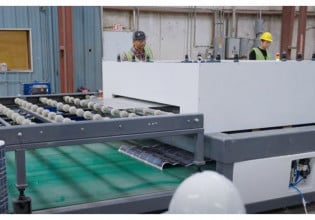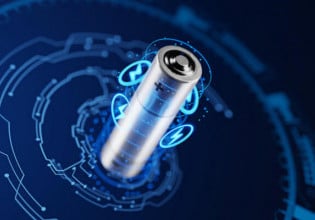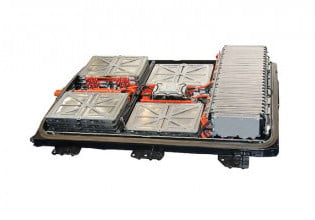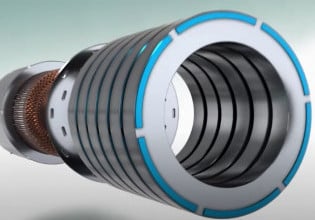Industrial Battery Management ICs with Integrated MCU
Renesas Electronics Corporation has announced two new battery management IC solutions for Li-ion rechargeable batteries used in industrial equipment, such as electric power tools and E-bikes. The solutions based on the RAJ240090, supporting three to eight cells, and RAJ240100, supporting three to ten cells, simplify the design of industrial battery management systems, providing a high degree of safety. The new solutions support up to ten cells for a maximum 50V capability and are Renesas' first battery management solutions for Li-ion batteries supporting industrial applications.
In recent years, Li-ion battery usage has increased from typical mobile applications to industrial applications such as electric power tools, E-bikes, vacuum cleaners, emergency power supplies, and uninterruptable power supplies (UPS). The RAJ240090 and RAJ240100 have built-in safety features to protect Li-ion batteries from catastrophic failure. In addition, Renesas offers design support tools, which enable the rapid development of battery management systems.
Key features of the RAJ240090- and RAJ240100-based battery management IC solutions: (1) Integrated microcontroller (MCU) that enables flexible support for a wide variety of industrial battery system specifications. The new solutions are the industry's first Li-ion battery management ICs for industrial equipment supporting three to ten cells to feature an integrated low-power RL78 MCU. They integrate the remaining capacity measurement and safety monitoring functions, such as overvoltage and overcurrent, and Renesas’ low-power RL78 MCU into a single package to provide flexible support for a wide variety of industrial battery system specifications.
This provides a high-precision A/D converter (required for battery control voltage measurement) and MCU that have been matched and adjusted beforehand, thereby contribute to substantially reducing the need for calibration. In addition, the peripheral functions required by industrial applications, including power supply, FET driver, and real-time clock, are included on-chip. This can reduce the BOM cost of the battery management system block by approximately 30 percent compared to other Renesas products.
(2) Rich design support tools that enable even beginners to easily implement battery systems with a high level of safety. Renesas plans to release development startup support tools, such as reference software, reference circuit diagrams, and setup manuals. The support tools will enable changes to parameter setting and simplify Li-ion battery pack design, and to enable faster solutions for battery management.
(3) Maintenance of high safety level through constant safety monitoring in ultra-low-power mode, with the ability to safely shut down the system if a problem occurs. The RAJ240090 and RAJ240100 support an ultra-low-power mode, which reduces current consumption to only 25 µA. This allows battery monitoring functions to operate constantly, even when the system is powered off. A record-keeping function can store information such as battery history to monitor deterioration and store system faults in the MCU memory. The MCU can issue an alarm and disable battery to prevent Li-ion battery failure.
In addition, the battery management ICs support a system configuration in which N-channel MOSFETs are positioned at the positive poles of the battery cells. This means that if the battery management IC fails, the system can be shut down safely. If, on the other hand, the MCU enters a runaway state, the battery protection function of the analog front-end block can continue to operate independently, providing failsafe for enhanced system safety.
Samples of the RAJ240090 and RAJ240100 battery management ICs are available now. Pricing differs by product. For example, the RAJ240090, which supports three to eight cells, is priced at US$10.00 per unit. Mass production is scheduled to begin in January 2017 and is expected to reach a volume of 1,000,000 units per month by January 2018. Renesas plans to provide evaluation boards, development tools, and software for these products.






